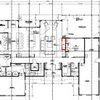arc breakers tripping
newhomeseattle
9 years ago
Related Stories

WORKING WITH PROS9 Questions to Ask a Home Remodeler Before You Meet
Save time and effort by ruling out deal breakers with your contractor before an in-person session
Full Story
LIFE10 Ways to Keep Your Home Safe While You're Traveling
Set off on your trip with peace of mind, knowing you've taken the right steps toward keeping your home secure
Full Story
HOUSEKEEPINGAll Together Now: Tackle Home Projects With a DIY Co-op
You're in good company when you pair up with a pal to clean, organize, repair and replace
Full Story
PRODUCT PICKSGuest Picks: 25 Kids’ Toys for $25 or Less
These toys foster creativity, learning and good, old-fashioned fun — and won’t break the bank
Full Story
MY HOUZZMy Houzz: Barn Wood Touches for a New England Home
Rustic charm and personality define this family’s traditional Cape Cod home
Full Story
DIY PROJECTSHow to Replace Your Kitchen Faucet
Swap out an old faucet to give your kitchen a new look — it's a DIY project even a beginner can do
Full Story
HOUZZ TOURSMy Houzz: Raw Meets Refined in an Open Brooklyn Loft
Exposed brick and rustic elements mix thoughtfully with global art and textiles in a former warehouse
Full Story
PRODUCT PICKSGuest Picks: Parisian Chic for Every Room
Give everything from the kids’ room to the kitchen that ‘je ne sais quoi’ touch
Full Story
BATHROOM DESIGNDoorless Showers Open a World of Possibilities
Universal design and an open bathroom feel are just two benefits. Here’s how to make the most of these design darlings
Full Story
TRAVEL BY DESIGNArchitectural Wonders: Postcards From Singapore
Today's masters — Safdie, Libeskind, Koolhaas and more — have put their fantastically modern mark on this flourishing city
Full StoryMore Discussions








toxcrusadr
jemdandy
Related Professionals
Danville Home Automation & Home Media · Grand Rapids Home Automation & Home Media · La Crescenta-Montrose Home Automation & Home Media · Lakewood Home Automation & Home Media · Oak Hill Home Automation & Home Media · Pittsburgh Home Automation & Home Media · South Lake Tahoe Home Automation & Home Media · Waukegan Home Automation & Home Media · Weston Home Automation & Home Media · Delhi Electricians · Channahon Handyman · Decatur Lighting · Laguna Niguel Lighting · Tampa Lighting · York Lightingmike_kaiser_gw